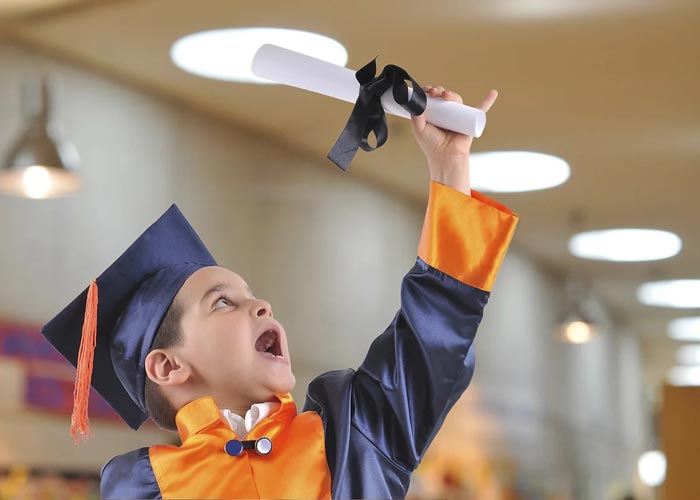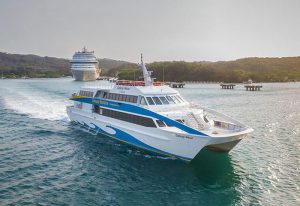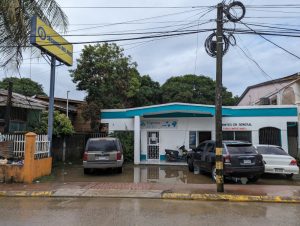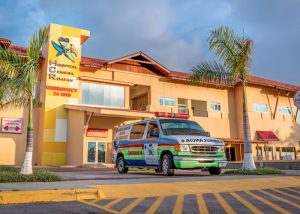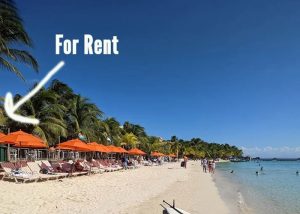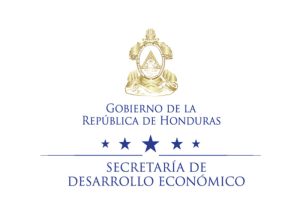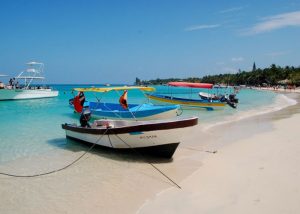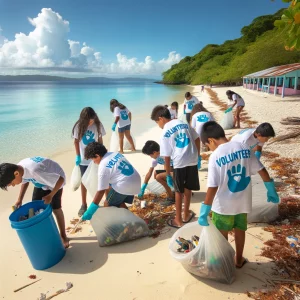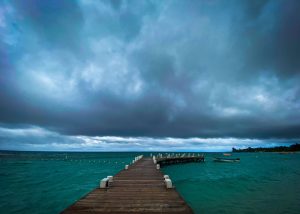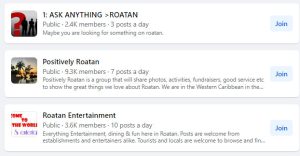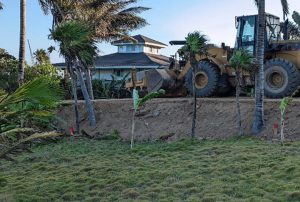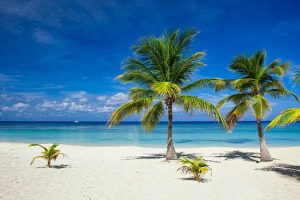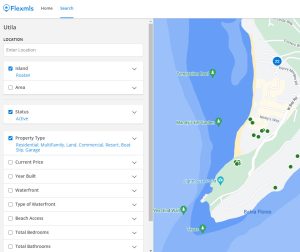The Hondurean and Private Education on Roatan
“Education costs money, but then so does ignorance.”
Claus Moser
Education is the most important factor in moving with children
Making the move to a new location can be challenging, not just for adults, but especially for parents who must navigate additional concerns and challenges when relocating with children. As parents, we worry about whether our children will settle into their new homes, make new friends, and have access to quality education. Whether contemplating a domestic or international relocation, parents must ensure that their choice does not negatively affect their children’s well-being, happiness, and future prospects, making schooling options a critical consideration.
When my wife and I first moved to Roatan, our children’s education was a paramount consideration. At the time, our three children ranged in age from 4 to 11. Initially, our plan was to stay for only a few years, and we believed that the life experiences our children would gain outweighed any potential short-term challenges they might face in schools that may not have been on par with those in the United States. However, circumstances led us to extend our stay on the island, and we did encounter some genuine difficulties with our children’s education during that time. Fortunately, all three of our children eventually went on to study at renowned universities, affirming that the move to Roatan did not hinder their preparation or opportunities for higher education.
Our story may not mirror your own, as the educational landscape on the island has evolved significantly over the past 17 years. There are now a multitude of options available in local schools, and the growth of online schooling, particularly during the Covid-19 pandemic, has opened up new possibilities for families worldwide. Online schools can be tailored to your family’s specific needs, capabilities, and budget, offering a range of options from fully guided programs with classes, tutors, and even summer camps, to more basic curricula that require additional parental involvement.
I do not intend to compare schools against each other. I firmly believe that every educational institution strives to provide the best for the children under its care. My sole aim is to furnish you with information about the current educational landscape and offer suggestions on how to evaluate your options as you conduct your research. I strongly encourage you to engage with other parents and personally visit schools to assess their suitability for your family. Remember that your initial choice is not set in stone. Just as in your current hometown, if one school doesn’t meet your child’s needs, alternative options remain available.
The Honduran school system
Honduras operates on two different educational systems, each with its own school year schedule. The first is the Honduran system, where public school classes commence in February and conclude in November. In contrast, the U.S. system aligns with schools starting in August/September and ending in May/June. To enhance clarity regarding grade levels, we will use the U.S. system as a reference.
- Pre-Kinder: Corresponds to Kindergarten in the U.S.
- Kinder: Equivalent to Preparatory/Preparatoria in the Honduran system.
- Primary: In the U.S. system, it corresponds to Elementary school and spans ages 6/7 to 13/14, covering 1st to 6th grade. In Honduras, it is known as Basica.
Education in Honduras follows a structured progression:
- Middle School: In the Honduran system, it’s referred to as Media or Ciclo común and caters to ages 13/14 to 15/16.
- 7th to 8th grade in Honduras is both free and mandatory by law.
- High school in the Honduran system is called Secundaria and typically serves students aged 15 to 18.
- 9th grade is the last mandatory grade by law. (Note: The U.S. system includes 10th and 11th grade as part of high school.)
- 12th grade is an additional year in the U.S. system for those following a U.S.-based curriculum.
- Completion of high school leads to either a U.S. High School diploma or a Honduran Bachillerato.
- University education begins at age 18 and continues onwards.
It’s important to note that, as per the Honduran constitution, all children are entitled to free education up to K9. However, Honduras, being a third-world country facing significant economic challenges, often grapples with insufficient schools, teachers, union-related issues, and shortages of textbooks. This situation is more pronounced in rural areas, and many families struggle to afford school uniforms, shoes, backpacks, and other necessary items, particularly the less privileged segments of the population. Less than one-third of the population manages to reach K9 without repeating at least one grade.
This shortage of resources and facilities sometimes leads to mixed-age classrooms within the same primary school grade level, with classrooms often accommodating 50 or more students. Additionally, not all public schools have the capacity to accommodate students up to K9, leading to evening classes or students having to travel to distant schools outside their community. This is a significant reason for the increased dropout rates, especially after the 6th grade, particularly on the mainland.
On a compassionate note, if you are considering making donations to support schools, there are commendable individuals and organizations providing shoes, bags, and other essentials to public school children on the island. It is recommended to consider supporting these initiatives, as the needs are greater in public schools compared to private bilingual schools.
Middle “Ciclo común” 12-15/16 years
Middle School is not separated in Honduras, as it is in the USA. In Honduras, there are no distinct schools to segregate elementary students from middle school students. In public schools, they share combined campuses, and there is not a significant difference between these two levels of education.
Secondary “Bachillerato” 16-18 years (Colegio in Honduras)
Education beyond the ninth grade in Honduras is considered “private education” because the government does not provide education past the 9th grade. These expenses must be covered by parents and are typically unaffordable for the majority of the population. In the last two to three years of study, should a student choose to continue their education, they select a career track of their choice. This often involves specialization in areas such as hospitality, teaching, business, or technical careers. In other words, students quickly focus on a specific job or career path. During this stage, they will state that they have graduated in their chosen field, like “Hospitality.” At the end of this period, some students obtain their “bachillerato,” which is required for further education. It can be confusing, but when a Honduran says they have been to “college,” it does not carry the same meaning as in other countries. Instead, it signifies that they have completed a degree that combines elements of a high school diploma and trade school certification.
University 3 to 7 more years
The sole public university in Honduras is the National Autonomous University of Honduras, known as (Universidad Nacional Autónoma de Honduras or UNAH.)
or UNAH. According to UNAH’s website, it asserts itself as the largest and highest-ranked university in Honduras. However, I am not acquainted with the criteria used for evaluating or ranking universities in Honduras, and therefore cannot independently verify this claim. UNAH currently offers a diverse range of 180 different degree programs across several campuses, some of which are relatively small, located throughout Honduras. For Honduran students aspiring to pursue higher education in fields like medicine or science, UNAH represents the primary public university option. UNAH charges approximately $1,000 USD per year for tuition, in stark contrast to private university fees that can reach as high as $8,000 USD annually.
Admission to UNAH is highly competitive, requiring an entrance exam. Certain degree programs, such as medical studies, may entail additional testing for acceptance. Unfortunately, most students who have only attended public schools may not possess the necessary qualifications to gain admission to a public university like UNAH.
While there are several private universities in Honduras, it’s important to note that the only private university in Roatan is UTH.
Education for ex-pats on Roatan
In general, for students up to the 6th grade, I would recommend finding a school that both you and your children feel comfortable with. Choose a school where you believe your child can learn, make friends, have fun, and one that is conveniently located near your home. While Roatan’s roads have improved over the years, commuting for an hour back and forth on island roads every day can be quite taxing! It’s crucial to keep a close eye on your children’s education, as my own experience with my children revealed that their basic math skills were lacking, and unfortunately, I didn’t catch it in time. It took them a considerable amount of effort and time to catch up, especially because I was the one teaching them. Of course, the quality of the private school you choose will impact your level of concern.
Private schools in Honduras are often referred to as bilingual schools. What exactly does “bilingual school” mean? It signifies an education system where students, who may have limited English fluency, are taught in both their native language (Spanish) and English. The extent to which “bilingual” education is offered can vary from one school to another. Many bilingual schools on the mainland and those following the Honduran academic calendar typically have only one class taught in English. Therefore, this description can be quite general for schools that are not classified as “public.” It’s important to inquire about the number of classes and subjects that are taught in English when evaluating a school.
As a side note, the treaty governing the return of the Bay Islands to Honduras from England stipulates that the English language should be respected and taught in schools as part of the Bay Islands’ culture. However, if you ask native islanders, they will likely express concerns about the rapid erosion of the English language in education.
The most critical decisions regarding schooling usually occur before secondary school, around the 6th grade. Most expatriates want their children to seamlessly integrate into the school systems of their home countries if the need arises. Therefore, it’s essential to investigate whether education, exam scores, diplomas, etc., are transferable to school districts in your home country. For example, entering an Australian university may require certain scores on university preparatory or entrance exams, but Australian universities only recognize specific exams as valid for this purpose. Only one of the college preparatory exams typically conducted in the United States is transferable to Australian universities, and it is not the SAT. Be well-informed about what would be required of your children if you were to return home, as nobody wants to explain to their children that years of schooling must be repeated!
Generally, the expat schools in Roatan adopt a US-based curriculum such as
, and they adapt their education programs around these curricula. Since these schools are US-based, all diplomas they issue are from the USA. Therefore, transitioning back into the US education system should pose little to no difficulty. However, be cautious because these educational systems often allow students to progress at their own pace, potentially leading to students being ahead or behind their peers of the same age attending public schools in the USA. If they have skipped a grade, the “No Child Left Behind” law mandates their progress, and they will not be placed in a class with children their age when returning to the USA. As they advance into high school, they will need to fulfill the required number of credits to graduate, based on the specific state’s requirements (credit counts for graduation can vary by state).
Your choice of school should be based on your budget, location, assessment of the curriculum, and your comfort level with the teachers and parents you meet. If you plan to stay in Roatan for an extended period, it’s important to understand that not all private schools are registered with the Department of Education in Honduras. Each school should have a SACE number if they are considered a registered school; it’s a good idea to request that number. Unregistered schools can present difficulties when transferring to a new school, requiring legal fees and apostille documents to do so. Historically, private schools that aren’t registered tend to come and go from Roatan, whereas certified schools tend to be more stable and have provided education on the island for numerous years.
Here is a list of schools I am aware of on the island. If you are aware of others or would like to provide additional details or corrections, please don’t hesitate to contact me so I can make updates promptly. My intention is to inform, not confuse. Where possible, I will include links to their websites or Facebook pages. There may be smaller or non-secular private schools that I am not currently aware of as of July 2022.
Private Schools on the island
Private and Bilingual Schools on RoatanEarly Childhood Daycare from 1-year plus to first grade
Paradise Babies Early Learning Center
Opposite Mayan Jungle Canopy Location: Sandy Bay Phone: +504 9662-8091 Email: info@playbasedprojects.com Type: Bilingual School Level: Elementary School (PreKinder +)
Discovery Bay School – Roatan
Name: Discovery Bay School Educational Approach: Montessori-inspired (not officially Montessori) Location: Sandy Bay (opposite Coral Stone) Phone: +504 9810-9710 Email: discoverybayschool.office@gmail.com Type: Bilingual School
Guidepost Montessori at Roatan
Name: Guidepost Montessori Roatan Type: Private Montessori School Location: Sky Lounge, Pristine Bay Rd, French Harbour Phone: +504 3197-1940 Email: roatan@guidepostmontessori.com
Nuna Academy
Name: Nuna Academy Type: Independent Bilingual School (Pre-K to K-12) Location: French Cay, Roatan, Honduras (East End of the island) Curriculum: Keystone Phone: +504 8890-1021 Email: admin@nunaacademy.net
Bay Islands International School
Name: Roatan International School Type: Bilingual School (Pre-K to K-12) Language of Instruction: English Phone: +504 9817-0344 Email: admin@roatanschools.org
Island Academy of Roatan
Name: Island Academy Type: Bilingual School Curriculum: Calvert (Pre-K to 8th grade) Location: Gibson Bight, Main Road (Next to Alba Plaza) Phone: +504 9610-4731 Email: vanessa@islandacademy.net
ESBIR Roatan Bilingual School
Name: Roatan Bilingual School Location: Coxen Hole Email: roatanbilingualschool@gmail.com, escuelabilingueroatan@gmail.com Phone: +504 2445-1582 / +504 2445-1654 Type: Bilingual School
Kingdom Bilingual Educational Center
Name: Church of God Bilingual School Location: French Harbour Main Website: Phone: +504-9695-6975 Type: Bilingual School
Note: Reliable internet may be important for educational purposes and residency applications.
